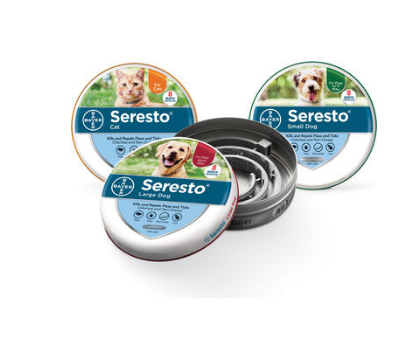The Environmental Protection Agency’s inspector general has begun to probe the agency’s response to reports of side effects of pet collars with pesticides that can be released into pets’ fur, more than seven years after EPA began evaluating complaints about the collars. The Seresto collars were the subject of more than 75,000 adverse incidents, including 2,340 pet deaths since it hit the market nine years ago, reporter Johnathan Hettinger wrote in a series of stories co published by Investigate Midwest with USA Today and supported by the Fund. The collars also have been reported to harm humans who were exposed.
Hettinger obtained a trove of documents that showed substantial debate inside EPA about one product – the Seresto collar – that has been linked to numerous complaints about harm to pets. The records show that EPA scientists said they were warned by their superiors not to document their concerns in emails, which are subject to disclosure under the federal Freedom of Information Act.
Elanco, the Indiana-based company that produces the collars, says they are safe, and noted in a 41-page public comment filed with EPA that the rate of adverse reports has decreased even as sales have risen.
The Center for Biological Diversity, which filed a lawsuit against EPA before receiving documents about Seresto which it sought under the federal Freedom of Information Act, said in a petition filed with EPA that the agency had a legal obligation to investigate the collars. In 2021, EPA launched a public comment period on the petition. The petition received more than 5,000 public comments, the majority of which urged EPA to take action on Seresto.
The U.S. House Committee on Oversight in 2021 launched an investigation into Seresto in response to the stories. The committee asked the company that makes the collars to voluntarily recall them but the company refused. Several class action lawsuits also have been filed.
Meanwhile, Hettinger recently reported that EPA has fewer staff overseeing more pesticide registrations.




